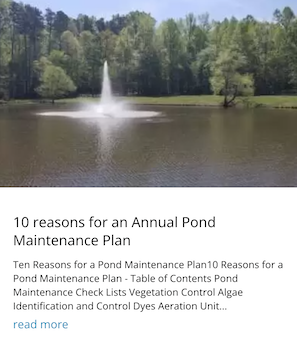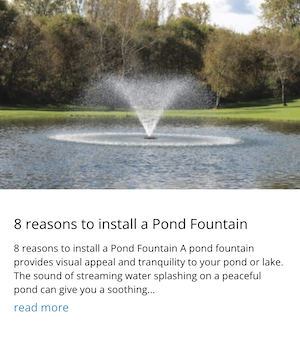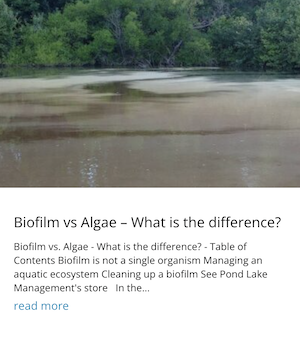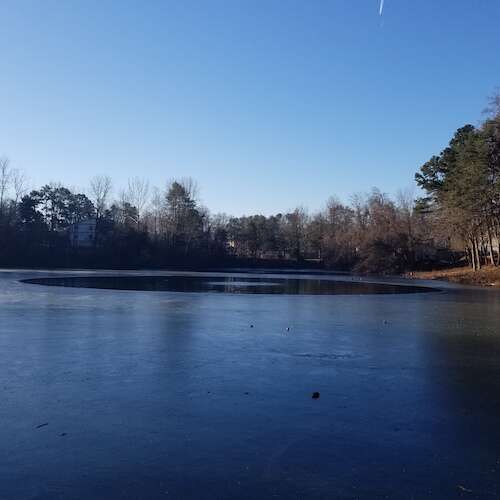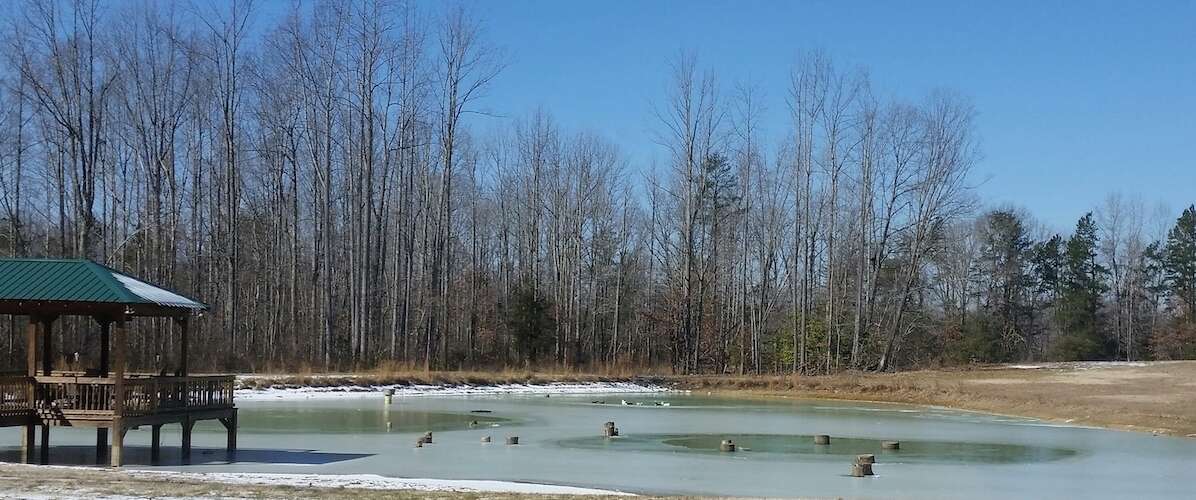
Five things you should do to Winterize your Pond.
(updated 12.5.2023)
Key Learnings – Winterizing your pond
Proper winter care will provide enough oxygen for healthy fish.
Generally there is no reason to drain a pond in the winter.
Leave aeration units and fountains running year-round. In frost-free zones.
If your pond consistently freezes over, it is best to remove units and pumps.
If you have a fish population, it is recommended to keep a hole in the ice to allow for CO2 release.
Take the following steps to winterize your pond
If you live in a cold climate, you should take steps to winterize your pond. When winterizing your pond take into account your fish population, plants, pumps, and other accessories (i.e. waterfalls, fountains, and aeration units). Properly Winterizing your Pond will provide enough oxygen and allow for C02 release to keep your fish population healthy all winter long.
Should you Drain your Pond? Consider these questions.
How big is your pond and what is the water source?
Will your pond freeze solid during the colder winter months?
Does your pond support fish or other aquatic animals?
What is the cost to refill the pond in the spring?
Generally, there is no reason to drain a pond. Snow and rain will just refill the pond over time and if you take the necessary steps to protect equipment such as pumps, fountains, and aeration units you will be fine. The farther south your pond is located there is even less of a need to drain your pond.
Remove dead foliage from the pond banks.
Remove dead trees and bushes from the banks of the pond. Trim back overhanging shrubbery to minimize dead leaves, and bird waste from entering the pond. As plant life dies and decomposes in a pond it will create and release toxic gases which can be very harmful to aquatic life.
Clean away any debris, vegetation build-up and muck on Fountain and Surface Aeration units.
After cleaning it is suggested to turn the units back on for continuous cleaning and water movement throughout the winter months. Be sure your unit’s pump is deep enough in a pond or on land that is a frost-free environment so that it will not freeze and break. If your pond consistently freezes over, it is best to remove the unit from the pond and properly store it over the winter.
If you need help with pond clean-up, and winterization call the professionals at Pond Lake Management.
Keep pond Fountains and Aeration units running.
To help prevent your pond from freezing over keep your fountains and aeration units running through the cold winter months. Moving water will help keep the pond from freezing over while introducing oxygen to the water and allowing CO2 to escape.
You could also use a pond bubbler for winter or a de-icer. A de-icer pushes warm water from. the bottom of the pond to the surface. They work especially well around docks, piers, and other in-water property.
To help overwintering Fish, keep a reasonably sized hole – 10% of the pond surface is recommended – to help your fish population.
In order to survive during the winter months, fish need sufficient oxygen. If your pond freezes over and doesn’t have sufficient depth, oxygen deprivation can lead to fish kill. In addition, CO2 build needs a way to escape into the atmosphere.
If you feed the fish in your pond, stop feeding them when the water temperatures reach 45°. The fish will be entering a dormant state for the winter months and may not be able properly process the food provided for them.
If you need help with winterizing your pond, call the professionals at Pond Lake Management.
Consider a Pond Maintenance Plan – Learn More about Pond Lake Management’s Annual Maintenance Plans
Need a consultation? – Complete our Request a Pond Assessment form.
Additional Resources:
Kasco Marine – Protecting Your Fish This Winter
Kasco Marine – Keep your Dock or Marina Ice-Free This Winter
Vertex Aquatic Solutions – Winter Fish Kill Prevention
More Learnings About Winterizing your Pond …
